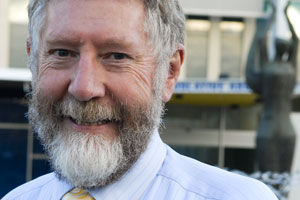AUSTRALIA is not at war. Therefore, Lt-Gen Angus Campbell’s treatment by Senator Stephen Conroy is part and parcel of robust democratic process.
Estimates committees of parliaments are notorious for giving public servants a hard time. Even the most junior of public servants hears the stories in the first few months of service. These committees might be frightening, but they are a key element of ensuring accountability.
Just because someone wears a uniform does not mean they can dodge political bullets. The general is a public servant implementing the will of the government. As such his actions, within the context of ministerial responsibility, are appropriately subject to close scrutiny by the parliamentary process. He is not alone among senior public servants in taking on a politically charged role.
When the conservatives used parliament to feign outrage and indignation in their attack on him as one after another they demanded an apology, they had an entirely different purpose.
In politics, as in the military, the old adage applies – the best form of defence is attack. By launching this attack on Conroy the Abbott frontbench was able to drop a smoke grenade to create a diversion from the conflict-of-interest shenanigans enveloping Assistant Minister for Health, Senator Fiona Nash, and the cloud in which her chief of staff, Alastair Furnival, resigned.
If she had even a modicum of sense of fair play, Bronwyn Bishop ought to have been comprehensively squirming in her Speaker’s chair. As a Senator from NSW, she built a reputation as one of the most vicious estimates committee attack dogs in the early 1990s when she mercilessly launched attack after attack on the then Commissioner for Taxation, Trevor Boucher.
Like Lt-Gen Campbell, Boucher was doing the bidding of the government. For Campbell, it is stopping the boats. For Boucher, at the behest of the government, it was investigating questionable taxation avoidance by big business, politicians and others.
The remark by Conroy that the general was “involved in a cover up” pales into insignificance when compared to ruthless and callous attacks on the then Commissioner for Taxation.
The argument that military tactics should not be exposed to scrutiny is no different from investigations undertaken by the taxation office. There is no real reason why Operation Sovereign Borders should be considered secret military business any more than the peace-keeping operations that the military has so successfully carried out, for example, in the Solomon Islands.
However, the government has a different agenda. The openness and transparency they called for in opposition flew the coup as they came into government.
If the government wishes to establish a barricade, it is appropriate that serious parliamentary interrogation of the public servants responsible unearths the reasons, the rationale and the tactics that have resulted in this outcome.
Hard questioning is not an excuse for personal attacks on public servants. Senator Conroy’s suggestion of the general’s complicity in a cover up is not difficult to understand. It is hardly unusual when the heat is turned up in these sort of hearings. However, his willingness to withdraw the comment indicates that even he recognised he crossed the line. It was a mere slap with a wet feather compared to the way then Senator Bronwyn Bishop dished it up to the tax commissioner, but turning into a political issue through hyperbole just happened to suit the politics of the moment.
Military leadership is tough. So is politics. However, even when it gets uncomfortable our political system cannot retreat from the ideals of accountability, openness and transparency.
Michael Moore was an independent member of the ACT Legislative Assembly (1989 to 2001) and was minister for health. He was a commissioned officer in the Army Reserve (CMF) in the 1970s.
The post Politics: Fighting for facts from the front line appeared first on Canberra CityNews.
